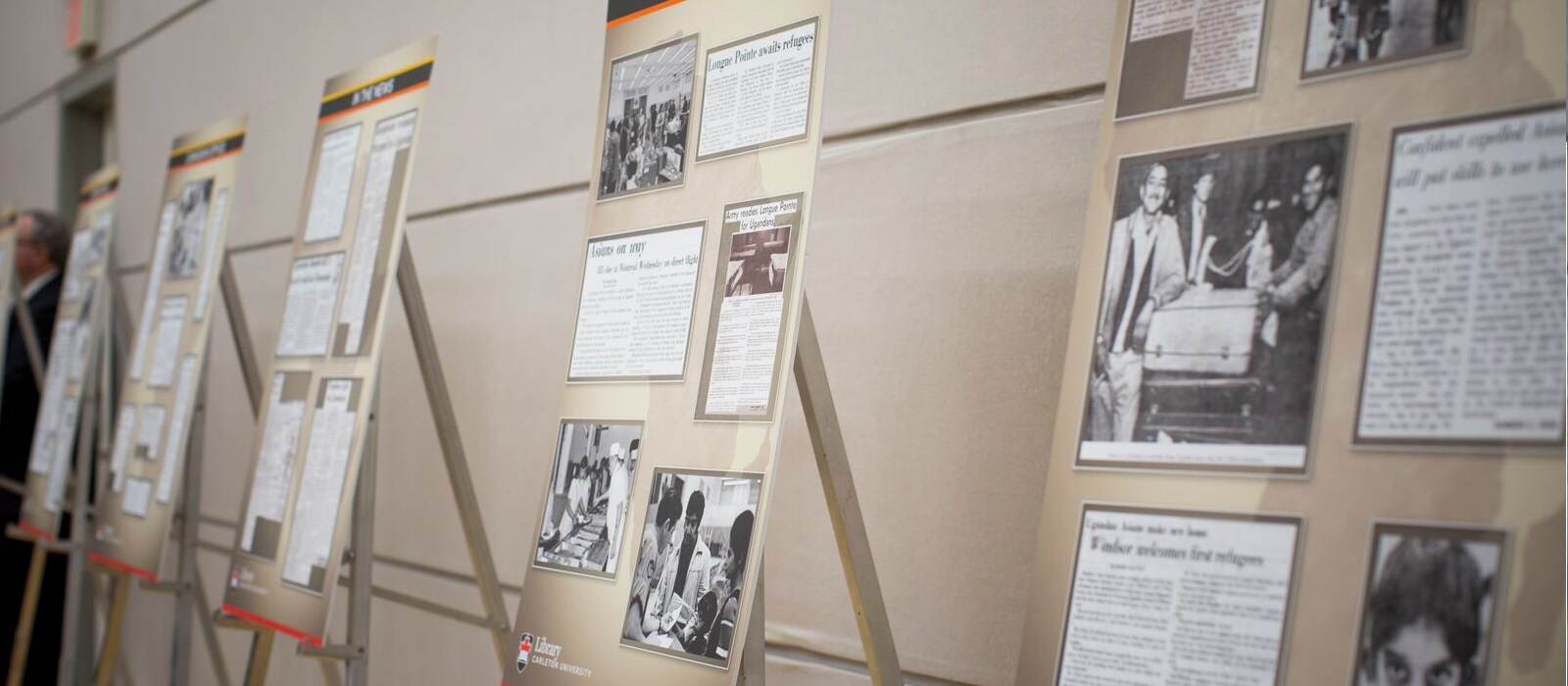The Story of Struggle, Hardships, and a New Life
Hassanali and Sakinabai Fakirani Assured That Their Children Knew the Importance of Education

In 2014, a graduate study room was named in honour of Hassanali Fakirani (1918 – 2008) and Sakinabai Fakirani (1921 – 2012), who fled Uganda in 1972 and found a new home for their family in Canada.
Sakinabai was born in Kutch, India to Jaffer and Hirbai Ramji, and grew up with seven siblings. In 1938, she married Hassanali and moved to his native Uganda, where they established their home and raised nine children.
Hassanali was born in Kalaki, Uganda to Rahemtulla and Kulsumbai Bhanji. A fist-generation Ugandan of Indian ancestry, Hassanali was an active member of the Ismaili community.
After marrying Sakinabai and settling in Soroti, Uganda, Hassanali started employment as a teacher and then as a photographer before opening his medicine store. He was a central part of community life in Soroti. He was known for his sharp mind, his generosity toward family and stranger alike, and for his devotion to his wife and children. During this time Sakinbai was also actively involved in community life. She was a caring and nurturing mother, a compassionate friend, and an advocate for the less fortunate.
In 1972, with the expulsion of Ugandans of South Asian descent announced by President Idi Amin, the 70,000-plus Ugandan Asian community – most of whom had been in Uganda for three or four generations – went through traumatic experiences in their attempts to leave Uganda within the 90-day deadline. Every family has their own unique story to tell.
Hassanali and Sakinabai’s family was separated and sent to different parts of the world as a result of the 1972 Uganda crisis. Hassanali and Sakinabai, along with four of their children, were granted refuge by the United Nations High Commissioner for Refugees (UNHCR) in a camp in Malta. Their eldest son and his family were sent to the UNHCR refugee camp in Italy. Two daughters received direct immigration to Canada. The eldest daughter and her husband were granted access to Great Britain and one son, studying in India, remained there during the crisis.
In 1973, the Fakiranis and their four children in Malta were permitted to immigrate to Canada, joining their two daughters who had settled in Montreal. Their eldest son and his family joined, and soon after their son studying in India would immigrate to Canada. After 13 years in Montreal, Hassanali and Sakinabai relocated to Toronto. They were very proud to call Canada home and imparted the Canadian value of a caring society to their children. Sakinabai and Hassanali Fakirani are survived by nine children, fourteen grandchildren, and five great-grandchildren. Their memory lives on in the minds, hearts, thoughts, and actions of those they left behind. Their struggles and hardships – but more importantly, their joy for life, their hope for a better future, and their strong belief in the importance of a united family – remain with their children, grandchildren, and great-grandchildren.
The Ugandan Asian Archive is a fitting tribute to Hassanali and Sakinabai, given that they continuously stressed the importance of education. It is the story of the transition of Ugandan Asians to Canada that the archive seeks to capture, preserve, and make available to scholars, policymakers, and future generations wishing to learn from these experiences.
Carleton University thanks the Fakirani family for their ongoing support of the Ugandan Asian Archive.
